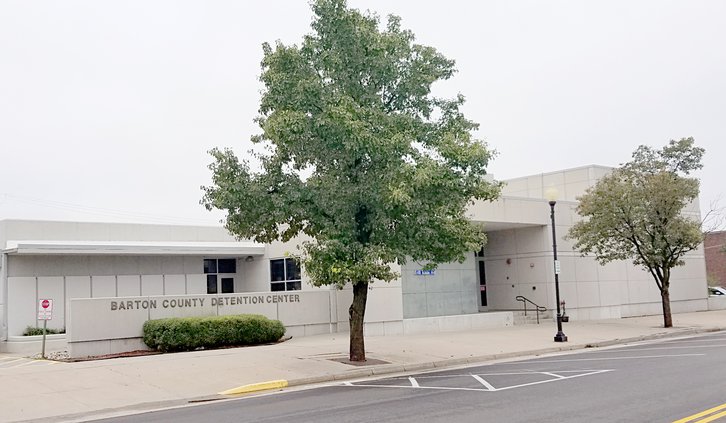There were no known cases of Covid-19 at the Barton County Jail this past week, but like most local, state and national agencies, Barton County Sheriff Brian Bellendir is preparing as if encountering a case in the jail is just a matter of time.
“I think it’s probably inevitable that we will get cases in the jail,” Bellendir said.
Bellendir said BCSO is taking a host of measures to address several potential issues which he anticipates would arise in this eventuality.
Earlier last week, for example, Bellendir announced that the BCSO was suspending visitations at the jail – outside of attorneys and legal staff – in order to limit the chances of the virus being brought into the jail from outside.
He did add, though, that video and phone visitation are still available.
The BCSO administrative office closed to the public as of Friday afternoon.
The measures the jail is taking, he said, come at the recommendation of the Kansas Department of Health and Environment (KDHE), Centers for Disease Control and Prevention (CDC), as well as law enforcement guidelines from the Kansas Sheriff’s Association.
One reason Bellendir is concerned is because of the isolated nature of the jail population.
“The population of a jail is a lot like the population of a nursing home or hospital,” he said. “You can’t send them home.”
As such, among other efforts to limit infection within the jail, Bellendir said sanitation efforts in the jail, as everywhere else, have been ramped up.
“We are stepping everything up,” he said. “We’re using commercial disinfectants. We’re mopping those cell blocks in the common areas of the jail, trying to get it done at least twice daily. So we’re doing everything we can to try to slow the spread of infection.”
He said there are also quarantine plans in place in the jail should there be a positive case detected.
The jail, he said, has an isolation area set up he believes would be equipped to handle roughly 10 cases. Anything beyond that, he said, would be difficult to keep outside of the general population, so they are seeking to be aggressive in their prevention measures, both with inmates and with staff coming in from outside the jail.
Should the jail get a case in, jail staff would most likely use personal protective equipment to prevent staff from becoming infected, as well.
In that regard, in addition to prohibiting outside visitors, Bellendir said BCSO is taking extra measures during the inmate intake process.
Beyond normal intake steps, Bellendir said inmates are also being screened for travel to “hot zones,” checking their temperatures, and screening for any upper respiratory problems.
He said the BCSO is also currently limiting its population through legal means. The jail, which has a capacity to hold 115 inmates, housed about 75 as of Thursday afternoon.
BCSO is working with the court system and with the county’s municipalities to release offenders who might be in on lesser or non-violent charges, or are not repeat offenders, though violent crimes and repeat offenders are still being processed as normal.
Another reason for the extra measures, Bellendir said, is to address potential jail staffing shortages should the virus begin to impact the jail, or the community at large, which Bellendir said is one of his primary concerns.
“We have to keep the jail open, we have to maintain it, so we’ll do whatever is necessary,” he said.
He said the jail does not have enough staffing currently to stagger shifts as some state agencies are doing to maintain adequate coverage.
One contingency plan that BCSO has put into place is to have BCSO road patrol officers cover shifts at the jail in the event the jail becomes short-staffed due to the virus.
“A lot of (road patrol) officers started at the jail and come out to the road, so they are familiar with it,” he said, adding he would even staff the jail himself if it came to a worst-case scenario.
Though he said the jail is prepared in the short-term, another concern the jail is having to address is being able to maintain supplies over the long-term.
“We need to feed all these guys three times a day,“ he said. “My jail cook went out to find milk here two or three days ago and it was not available. So we’re having to order it from different sources. And that’s something we have to keep our keep an eye on.
“Supplies and food stuffs may become challenging at some point,” he said, acknowledging current grocery and cleaning supply shortages that have impacted the general public are impacting the jail, as well.
He acknowledged, though, the situation is fluid, and changes rapidly, and the measures they are taking now may have to be adapted if the situation becomes more severe.
“Nobody can tell us how severe this is going to get,” he said. “We don’t know. We don’t have any answers to those questions. We have requirements in place in order to deal with it as best we can. So we are thinking ahead on this thing.”
“We’re realists,” he said. “We’re planning or worst-case scenario here, and how we can mitigate it and make it easier to deal with for us (in the long-term).”






